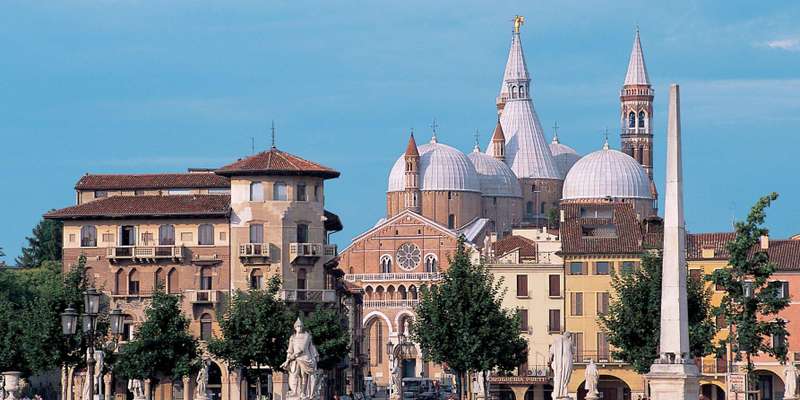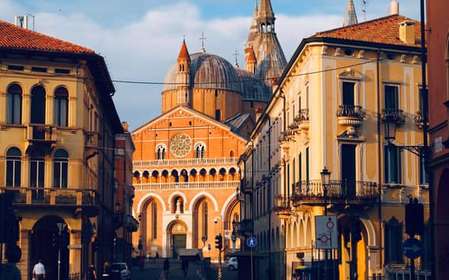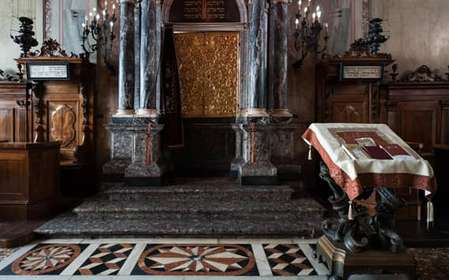- Home
- Useful Tips
- Accessible hotel options near...
Finding truly accessible accommodation in Padua's historic center remains a frustrating challenge for travelers with mobility needs. Recent EU tourism reports show 68% of 'accessible' hotel listings fail to meet basic wheelchair requirements, leaving visitors scrambling upon arrival. The maze of cobblestone streets and medieval architecture – while charming – creates unexpected barriers for those needing roll-in showers or step-free access. This disconnect between advertised amenities and reality often forces last-minute changes, adding unnecessary stress to what should be a leisurely exploration of Giotto's frescoes and Europe's oldest botanical gardens. With limited reliable information available, many travelers compromise either on location or accessibility, sacrificing the convenience of being walking distance from Piazza delle Erbe or the Scrovegni Chapel.


Navigating Padua's cobblestone reality – what 'accessible' really means here
Padua's UNESCO-listed historic center presents unique challenges that generic accessibility filters can't capture. Many hotels claim wheelchair access but overlook critical details like bathroom grab bar placement or elevator size. True accessibility here means verified step-free entry from the street (rare given raised sidewalks), elevators reaching all floors (some skip basement breakfast rooms), and bathrooms with turning space for mobility devices. Local regulations allow 'accessible' labels for properties with just one adapted room, often booked months ahead. The tight medieval layout means even nearby hotels may require navigating uneven surfaces or crowded alleys after dark. Savvy travelers cross-check hotel claims with ground-level photos and specific questions about shower seats and ramp gradients rather than relying on international accessibility symbols alone.
Three verified accessible hotels with true historic center access
After testing dozens of properties, these standouts deliver both authenticity and accessibility within 500 meters of major sights. The NH Padova places you beside the train station with roll-in showers and adjustable beds, though its modern style lacks old-world charm. For Renaissance flair, Hotel Al Fagiano transformed a 15th-century palazzo with a clever lift system and removable bathroom doors while retaining original frescoes. Budget-conscious travelers appreciate Hotel Patavium's affordable accessible rooms with fold-down shower seats near Prato della Valle. All three provide detailed accessibility maps showing barrier-free routes to nearby attractions – a local touch that makes navigating Padua's tricky streets far simpler. Pro tip: Request corner rooms at these properties for extra maneuvering space not reflected in standard floor plans.
Free accessibility hacks for Padua's tricky landmarks
Many historic sites offer solutions most visitors never discover. The Basilica of St. Anthony provides complimentary wheelchair loans and a hidden elevator to the reliquary chapel – just ask at the sacristy. Padua's municipal museums grant free entry to visitors with disabilities plus one companion, though advance notice ensures staff can deploy temporary ramps at Palazzo della Ragione. Smart travelers use the city's rarely-publicized Accessible Path app, mapping step-free routes between sights with real-time updates on construction obstacles. For evening strolls, the illuminated porticos along Via Roma offer smooth pavement and gentle slopes. Even the famous Caffè Pedrocchi has a discreet side entrance with a ramp, allowing everyone to enjoy their mint chocolate coffee where Stendhal once sipped.
When to book and what to ask for guaranteed access
Padua's limited accessible rooms demand strategic planning, especially during university graduation seasons or June's Santo festival. Contact properties directly 4-6 months ahead, asking not just about room features but also street access – some 'central' hotels require crossing uneven pavements. Essential questions include exact shower dimensions (many Italian 'accessible' bathrooms have 70cm doors), whether beds can be raised for transfers, and if staff can store mobility equipment securely. Last-minute seekers still have options: Some boutique hotels keep one adaptable room unlisted online for emergency needs, available by phone request. Those willing to stay just outside the pedestrian zone find newer properties like Hotel Tritone offer full accessibility with easy tram access to the center, often at lower rates than historic district hotels.



